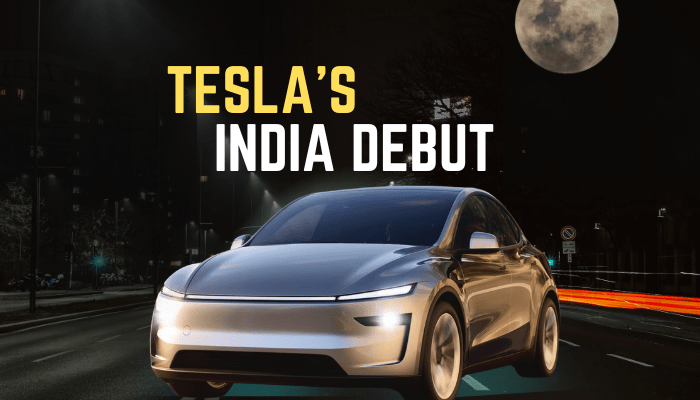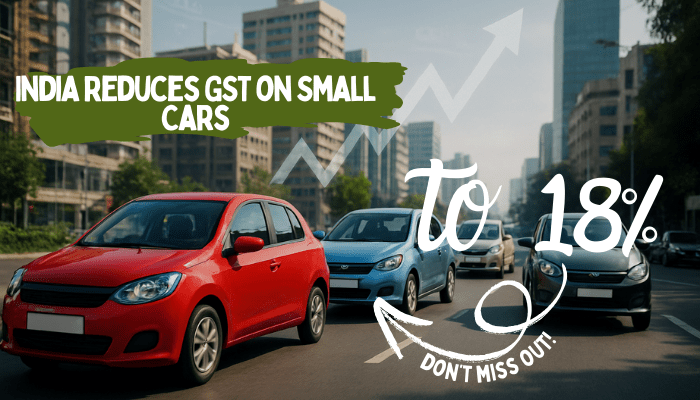When Tesla, the world-famous electric vehicle (EV) company, announced it was finally entering India, people had mixed feelings. Many were excited to see such a popular brand come to India, but others wondered if it would succeed here. After all, India is the third-largest car market in the world, but Indian buyers are very focused on getting value for their money. In this blog, let’s talk about Tesla’s arrival in India, its pricing strategy, and the challenges it faces in this price-sensitive country.
Tesla’s Entry and Pricing Strategy
Tesla India started its journey by launching the Model Y SUV, a fully electric mid-size SUV known for its long range and advanced tech features. It is priced at around ₹60 lakh (about $70,000). This is almost double what the same car costs in the United States. Why is it so expensive in India? A big reason is the high import duties, which can go up to 100% for fully built cars. On top of that, there are luxury taxes that make the price even higher.

Now, compare this to the usual cars that Indians buy, which cost between ₹5–15 lakh. Clearly, Tesla’s prices are way beyond what the average Indian can afford. This makes Tesla’s Model Y a luxury product in India, rather than a car for the masses.

Key Highlights of Tesla Model Y:
- Range: Up to 531 km on a single charge (WLTP cycle)
- Acceleration: 0–100 km/h in just 3.5 seconds (Performance variant)
- Seating: Available in both 5-seat and optional 7-seat configurations
- Tech Features: Autopilot, over-the-air updates, 15-inch touchscreen
- Storage: Large cargo space with a front and rear trunk
- Safety: 5-star safety ratings in crash tests
These features make it a strong competitor globally, but in India, pricing makes it a niche offering.
Market Landscape: The Gap Between Brand and Buyer
In India, most people buy cars that are affordable and give them good value for money. Brands like Maruti Suzuki and Tata Motors dominate the market with their budget-friendly cars. Some companies like BYD and MG have also entered the scene with lower-priced EVs.
For example, Tata and Mahindra’s electric cars are priced between ₹10–20 lakh, which is much cheaper than the ₹60 lakh Tesla Model Y. Because of this price gap, Tesla ends up competing with high-end brands like BMW and Mercedes-Benz, which only a small group of wealthy people in India can buy.
Barriers Beyond Pricing
Price is not the only challenge for Tesla in India. Other important factors make things tough:
Charging Infrastructure
India’s EV charging network is still growing. Currently, there are only about 25,000 public charging stations for a population of over 1.4 billion people. This means that unless you live in a big city, it can be hard to find a place to charge your EV easily.
Local Manufacturing and Policy
The Indian government is trying to encourage carmakers to build factories in India by offering incentives and lowering import duties for those who manufacture locally. If Tesla builds cars in India, the prices could go down by almost half. However, Tesla hasn’t yet confirmed any plan to open a factory in India.
Adapting to Indian Roads
Tesla’s cars are made keeping Western roads in mind, which are very different from Indian roads. To make their cars suitable for India, Tesla might need to make some changes. This could add more costs and delays.
Opportunities and Outlook
Even with these challenges, Tesla seems to be playing a long-term game in India. By offering premium cars first, they are targeting wealthy customers and tech enthusiasts. If they see enough demand or better government support, Tesla might then think about local manufacturing to lower prices. In the future, models like the Tesla Model 3, Model S, and Model X could also make their way to the Indian market, broadening the brand’s appeal.
If Tesla does set up factories in India, it could:
- Take advantage of government incentives
- Reduce prices significantly
- Reach more Indian buyers
- Contribute to EV ecosystem growth
But until then, Tesla will remain a brand for the rich and aspirational buyers, not the common man.
Conclusion
Tesla’s debut in India is exciting and an important step towards growing the EV market here. But because of the high prices and local challenges, it will take time before Tesla becomes a common name on Indian roads. For Tesla to truly succeed, it needs to adapt to Indian needs, offer better pricing, and help grow the charging infrastructure. Until then, Tesla will stay a luxury brand in India, admired but out of reach for most people.Explore expert tips and latest updates on cars at MyCarWisdom today.
Raja Yadav, the content writer at My Car Wisdom, brings a unique voice and style to our blog. With a knack for storytelling and a keen eye for detail, Raja ensures that every piece of content is informative, engaging, and easy to understand. His focus is on delivering high-quality articles that cater to both novice car owners and seasoned automotive enthusiasts.




